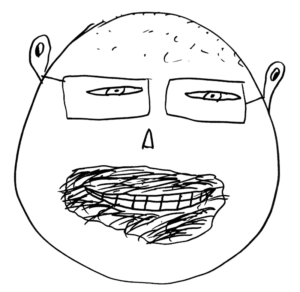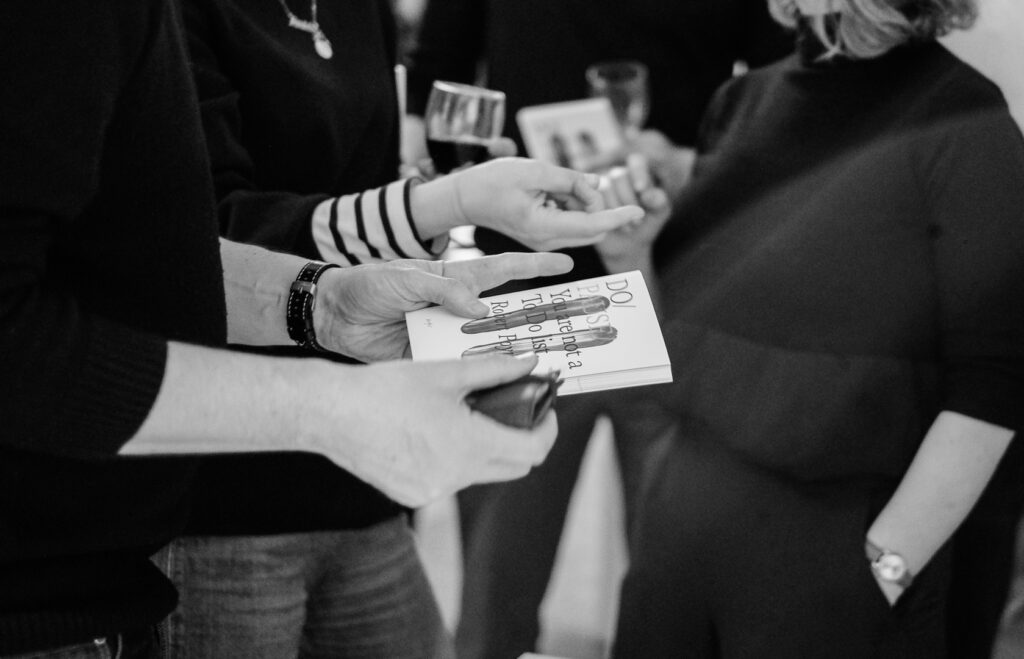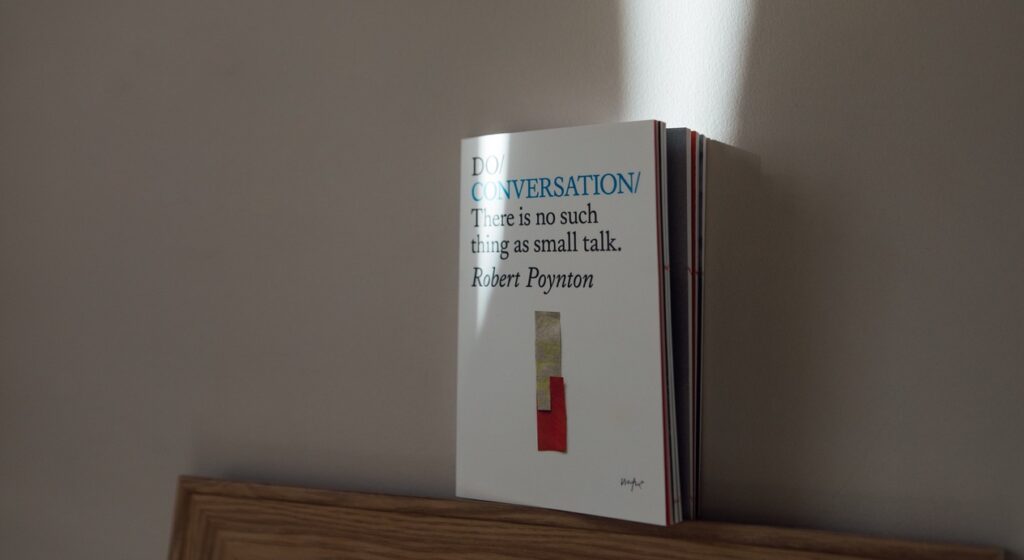Last week, as part of the Oxford Literary Festival, I was invited by Blackwells bookshop to talk about my new book ‘Do – Pause’. For me, it doesn’t get any better than that. Oxford has been a special place for me since I was four years old and is now my home in England. Blackwells is my favourite bookshop in the world (though Powells in Portland, Oregon would run it a close second).
The night before the Oxford event I hosted a launch party in London, using the book as a pretext to gather a fabulous and fascinating group of friends and colleagues. It was a wonderful evening and a good warm up, but venturing out in public, in the august surroundings of Oxford, with the Bodleian library next door looking over my shoulder, was a different prospect altogether.
It was a cold, blustery, English day and there was a heavy shower just before I began, which helped drive people into the marquee. By the time I got up to talk, there was a big crowd, about half of them standing. And what a wonderful crowd they were! When an audience is attentive and curious, you can feel it. Instead of stumbling over words, or worrying about what to say next, they hold you, giving you time, willing to wait while you find your words, or feel your way forwards. In short, they invite you to pause. Which was sweet.
They also asked great questions. One that made me laugh was: “how do you avoid making ‘pause’ another thing on your ‘to do’ list?”. The sign of a good question is that it makes you think, and this one did precisely that. In fact I am still thinking about it now.
The ‘to do’ list is a forcing function. It creates a sense of obligation, as well as a reminder. That is its purpose and it is very useful. But a pause isn’t like that. Pauses don’t force things, they allow them. You don’t tick them off but sink into them. A pause is, as Gary Hirsch puts it “a quality of stopping”. And yet “pause is an active presence, not so much an absence of thought and action as an integral part of it” (‘Do Pause’ page 17).
So rather than forcing it onto your to do list, my strong feeling is that you should pay attention to where pauses happen already, or could happen, or want to happen. Just hold the idea and see what occurs. Simply paying attention in this way will start to create them, as the act of noticing is, in itself, a micro pause. But beyond that, developing this sensibility brings a contrasting, expansive, opening attitude and energy to bear, which is very different to the forcing, obliging function of a ‘to do’ list.
You can still plan pauses, they don’t have to be spontaneous. For example, in the process of writing the book I planned in a number of substantial pauses in advance. I also adopted a deliberately structured way of writing that involved measured pauses (called the ‘Darwin Lubbock’ method – which I will write about another time) but both of these came from careful consideration of my needs. They emerged from thinking about design not from a box-ticking mentality, that races against the clock or the calendar.
Finally, it is also important to remember to be patient and compassionate with yourself. Sometimes there is nothing worse than enthusiasm (and I say this as someone who easily becomes enthusiastic). You can always pause on the idea of pause. Which is absolutely fine. It will be there for you to pick up, or play around with some other time, when it does feel right.




